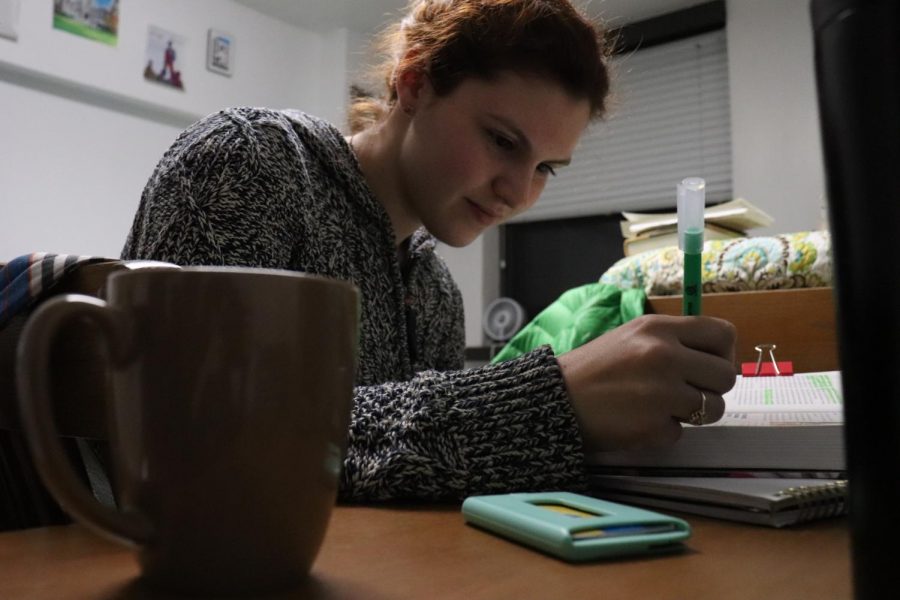A Spotlight on Collegiate Mental Health Initiatives
By Kelly Christ
Over the past decade, there has been a monumental shift in the way colleges and universities deal with mental health issues on campus. This progress has been incredibly beneficial in regards to providing both better options for counseling as well as promoting awareness and understanding of the subject.
These changes often have been in the form of campus-wide initiatives that combine the abilities of multiple departments and areas in order to assist the university community in the realm of mental health needs better.
I recently met with Fordham’s own Jeffrey Ng, Psy.D who is a licensed clinical psychologist and the director of the university’s Counseling and Psychological Services to discuss the changes Fordham University and universities across the country have instituted to improve the handling of issues of mental health on campus.
One of the primary factors Ng pointed out was the increased demand for mental health resources. One survey by the American Psychological Association noted that 95 percent of counseling center directors indicated that the mental health of students is a growing concern. However, this increased demand is also likely a result of heightened awareness and empathy towards the topic of mental illness as a whole. Fordham University, and as many other institutions across America, has made a campus-wide investment into a variety of programs and initiatives to help the community improve and manage its mental health.
Many institutions and particularly Fordham University, have emphasized the need to train all university faculty members thar maintain contact with students to notice the signs of mental illness. This includes professors, teaching assistants, resident assistants, resident directors and more. The main goal here is prevention; if the mental illness can be addressed sooner, the student will be able to learn how to manage it, improve their mental health and prevent detrimental effects on their academic performance, social life, etc.
With intervention, the individual that is struggling will be able to learn coping skills that they can carry with them for the rest of their lives.
At Fordham University, many professors include information about Counseling and Psychological Services and other mental health resources on their class syllabi. This may seem small, but it allows students to have this crucial contact information on hand. If they are too shy to ask anyone for help directly, these resources allow them to access the resources in a more comfortable manner.
Ng emphasized that Fordham University is dedicated to normalizing help-seeking so that students are not afraid to ask for the help that they need. Counseling and Psychological Services offers a wide array of options for addressing issues of mental health, including both individual and group therapy services, referrals for long-term psychiatry, consultations about students of concern and wellness workshops.
In April of 2007, a devastating tragedy changed the landscape of how colleges monitor the mental health of students. The mass shooting by a student at Virginia Tech led to the horrific deaths of 32 students and faculty members. Colleges and universities changed many protocols practically overnight to prevent a similar tragedy from ever occurring again.
While many of these involved a massive overhaul of emergency response measures, they also involved new changes to how they report the mental health of students that warrant concern for both their own mental well-beings as well as the safety of the larger community. This largely resulted from the discovery that the shooter had been declared mentally ill by a judge two years before the tragedy. One aspect of this overhaul was the creation of a committee for students of concern, comprised of individuals from departments across all aspects of collegiate life. As a result, colleges make it a priority to pay attention to any potential threats and to take mental health issues seriously.
The Office of Residential Life trains all the staff members to look for signs that students are potentially struggling, as well as knowing how to intervene should the situation require it. The resident assistants at Fordham University receive training on how to spot signs of and to assist students struggling with mental illnesses such as eating disorders, anxiety, depression, schizophrenia and bipolar disorders. All resident assistants are also QPR (Question, Persuade, Refer) certified, which is a suicide prevention technique.
The goal of Fordham University’s Counseling and Psychological Services faculty is ultimately to provide whatever help it can to members of the community that are struggling. Mental health is just as important as physical health, and it should be looked after just as much. The resources are available whether your struggles are mild or severe.
If you are struggling with mental health issues, do not hesitate to contact the following resources:
Fordham University Counseling and Psychological Services (RH): 718-817-3725
Suicide Prevention Lifeline:
1-800-273-8255
Crisis Textline: text START to 741-741
















































































































































































































Manuel Pubillones • Mar 8, 2019 at 6:48 am
Great article and in 100% agreement!